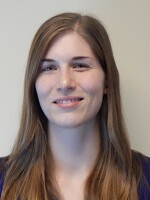The Latino population faces many challenges when it comes to barriers to care for addiction — including English proficiency, lack of insurance, and the stigma surrounding the issue. But the programs at Sixteenth Street Community Health Centers, including its Alcohol and Other Drug Addiction (AODA) and Medication Assisted Treatment (MAT), are especially geared toward the population it serves.
READ: Sixteenth Street Practices Substance Abuse Treatment 'Through A Multicultural Lense'
Luis Lopez is one person who has gotten help from Sixteenth Street’sprograms. He’s had a long history of drug addiction, starting as a child in Puerto Rico. Lopez says he had a troubled relationship with his father, who was involved in drugs himself.
"I saw [my father] doing things and I thought it was something normal," Lopez recalls. "I started at age 12 to involve myself with drugs — to use drugs, to sell drugs. So from there, I never stopped."
Lopez's involvement with drugs escalated to getting involved with firearms too. He says his life in Puerto Rico was "like scenes you would see in a movie, that's what we lived in my family, in my house."
Lopez was using drugs every day, stealing from his family and living on the streets. He continued to get even deeper involved with other people in the drug scene.
"On one hand there's a lot of things that I regret, but the thing I most regret in my life is having tried drugs in the first place." - Luis Lopez

"On one hand there's a lot of things that I regret, but the thing I most regret in my life is having tried drugs in the first place," says Lopez.
At 16, Lopez was sent to live with family in the United States to get away from his life in Puerto Rico. However, life in the U.S. ended up being worse and he got involved in the drug scene stateside — this time trafficking drugs.
"It was really new for me because I had always just used, I never saw myself being part of something so big like trafficking," Lopez recalls. "And from there, I hit rock bottom again."
He returned to Puerto Rico to escape to escape people who wanted to kill him. "I was close to dying many times at the hand of my vice," says Lopez.
There he spent time in jail, which he says had even more drug activity. At this point, the longest time he was clean from heroin and cocaine was for about six months.
"They could send me to the moon and on the moon I could find drugs," he says. "I didn't love myself as a person ... I made a lot of people suffer ... Drugs destroy a lot of things, and above all they destroy you as a person."
READ: For One Rural Community, Fighting Addiction Starts With Recruiting The Right Doctor
Despite hitting more rock bottoms, Lopez had an epiphany in church. At 30, he wanted to be done. He committed fully to a medication assisted treatment program in Puerto Rico after learning his wife was pregnant. "That's when I started to use the medication like you should use the medication," says Lopez. "I started using it before, but not seriously."
He adds, "After 16 or 17 years of using, maybe it was a little late but I don't think it's too late. It's really hard, but you can do it ... I think everybody deserves an opportunity."
Lopez and his family later moved to Milwaukee. While he was clean for about five years, he still needed access to a treatment program. But he had trouble accessing recovery programs, especially those with Spanish language services. Ultimately, his primary care doctor at Sixteenth Street recommended its programs.
"As Latinos, we think if you see a psychologist or a psychiatrist you're crazy — and I thought that, too." - Luis Lopez

Any person seeking suboxone assistance needs to see a therapist as a part of a recovery program, according to Lopez's therapist Tia Oestreich. "The way that I look at medication, whether it's suboxone or antidepressants for clients I work with, it is a way to help those clients get to my office," she explains.
Lopez admits that he initially didn't want to see a therapist and changed the appointment several times before reluctantly going.
"As Latinos, we think if you see a psychologist or a psychiatrist you’re crazy — and I thought that, too,” he says. “It’s taboo — psychiatrists, psychologists, all the mental health stuff. But if you need help, you need to look for it. In order to be there for your family, to do things for your life you have to be good with yourself first.”
Oestreich says the most important thing she can do to help establish trust with a client is to meet someone exactly where they are. "I don't expect someone to come into my office and turn a light switch and they're not going to use again. Some people aren't quite ready for that."
She also notes that conducting her sessions in Spanish has been the best personal and professional decision. "I think speaking in someone's native language is so, so important. It really just bridges a gap," says Oestreich.
Lopez meets with Oestreich about once a month to help maintain his sobriety and access to medication. But Oestreich explains that she will always adapt to what she feels her clients need — whether that's meeting weekly or monthly.
"I just like to explain that my job is not to judge, it's not to be biased, and I'm not a part of your life in the way that a family member is," she adds.
Lopez notes that many people assume becoming clean is a one-step process. "It's a really long thing that's always there. And because of the help I get at the clinic, from my family, when you have people supporting you, you're able to keep looking forward," he says.







